Related Research Articles
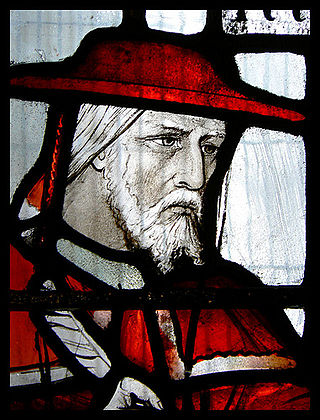
John Morton was an English cleric, civil lawyer and administrator during the period of the Wars of the Roses. He entered royal service under Henry VI and was a trusted councillor under Edward IV and Henry VII. Edward IV made him Bishop of Ely and under Henry VII he became Lord Chancellor, Archbishop of Canterbury and a cardinal.
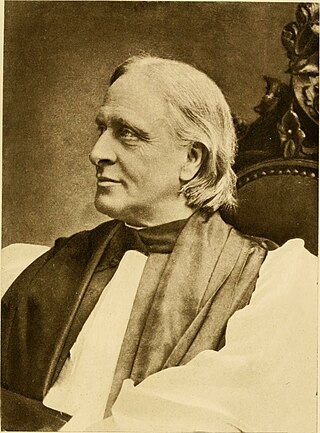
Edward White Benson was archbishop of Canterbury from 1883 until his death. Before this, he was the first Bishop of Truro, serving from 1877 to 1883, and began construction of Truro Cathedral.
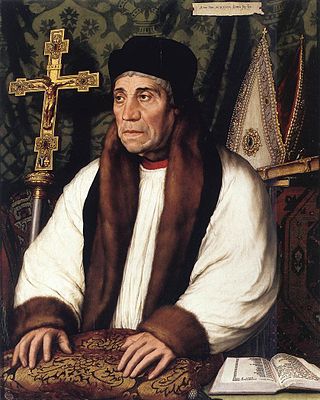
William Warham was the Archbishop of Canterbury from 1503 to his death in 1532.

Henry Chichele was Archbishop of Canterbury (1414–1443) and founded All Souls College, Oxford.

Richard Fleming, Bishop of Lincoln and founder of Lincoln College, Oxford, was born at Crofton in Yorkshire.
Henry Ware was a medieval clergyman who became a diplomat and Lord Privy Seal for King Henry V of England from 1416 to 1418. He later became the Bishop of Chichester. Originally from Wales, Ware served as a canon from the 1390s and then studied law, of which he was made a master, at Oxford University. He later became an official in the court at Canterbury. He also spent some time in diplomatic missions to France. In early 1418 he was elected bishop of Chichester, and was consecrated in July 1418. He died in July 1420, between the 7th and the 26th.
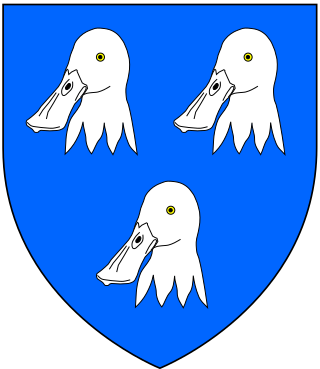
Edmund Lacey was a medieval Bishop of Hereford and Bishop of Exeter in England.
John Austin Baker was a Church of England bishop, Bishop of Salisbury from 1982 until his retirement in 1993.
Thomas Walker was an Oxford academic and administrator. He was twice Master of University College, Oxford.
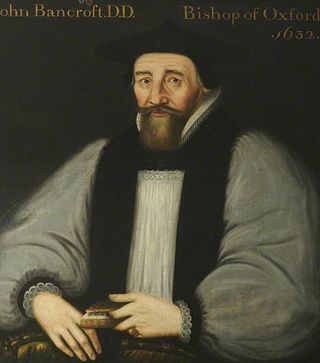
John Bancroft was an English clergyman and academic, who served as Bishop of Oxford and Master of University College, Oxford.
Nicholas [of] Hereford was an English Bible translator, Lollard, reformer on the side of John Wycliffe, Fellow of The Queen's College, Oxford and Chancellor of the University of Oxford in 1382. He was a Doctor of Theology, which he achieved at Oxford University in 1382.
John Martyn, also known as John Marten, was a Master of University College, Oxford, England.
William Gregford was a Master of University College, Oxford, England.
John Roxborough was a Master of University College, Oxford, England.
Ralph Hamsterley was a Master of University College, Oxford, England.
Thomas Benwell was a Master of University College, Oxford, England.
Richard Witton was a Master of University College, Oxford, England.
John Castell was a Master of University College, Oxford, and later a Chancellor of the University of Oxford. Castell was a Fellow of University College. He became Master of the College circa 1408. He also held preferment in the Diocese of York with his mastership. In 1411, a sentence of excommunication was issued by the Archbishop of Canterbury, Thomas Arundel, against Castell, Fellows at the College — Robert Burton, John Hamerton, and Adam Redyford — and the College as a whole, due to Lollardy leanings. An appeal to the Pope against the excommunication was made by the bursar of the College, John Ryvell. Castell survived the controversy and continued as Master until 1420.
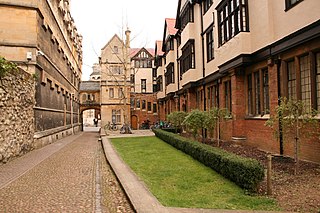
John Appleton was a Master of University College, Oxford, England.

William Laud was a bishop in the Church of England. Appointed Archbishop of Canterbury by Charles I in 1633, Laud was a key advocate of Charles I's religious reforms; he was arrested by Parliament in 1640 and executed towards the end of the First English Civil War in January 1645.
References
- 1 2 3 4 Darwall-Smith, Robin, A History of University College, Oxford. Oxford University Press, 2008. ISBN 978-0-19-928429-0. Pages 48–50, 52–53, 58, 73–74, 529.
- 1 2 Carr, William, University College , Routledge, 1998. ISBN 978-0-415-18632-2. Chapter IV, The Fifteenth Century: Early Benefactors, Buildings, and Further Statutes (pages 53–73).